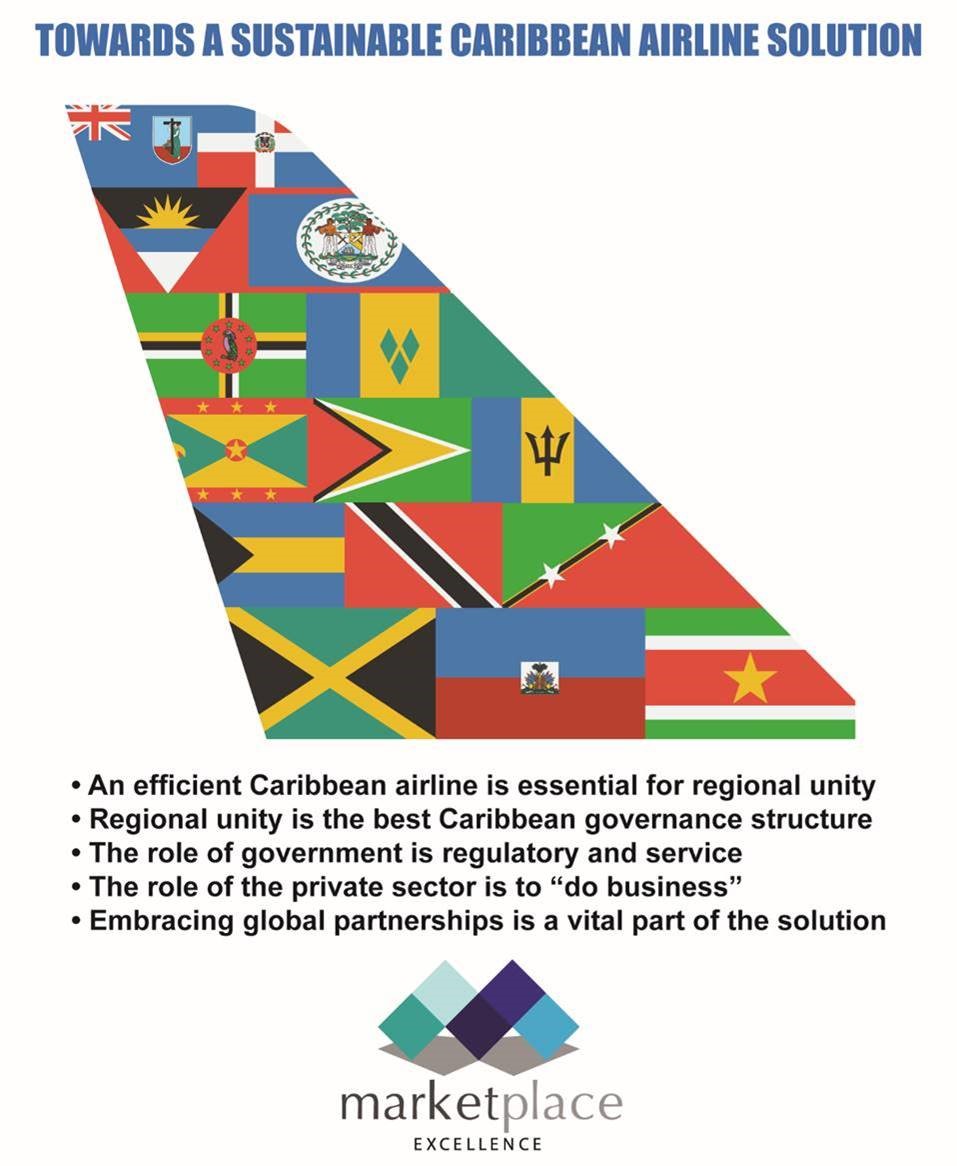“Do not be conformed to this world, but be transformed by the renewal of your mind, that by testing you may discern what is the will of God, what is good and acceptable and perfect.” – Romans 12:2
LIAT (1974 Ltd) has been hemorrhaging for a long time primarily because of weaknesses in governance structure, political interference, undercapitalization, unimaginative marketing, high cost, low productivity, and myopic partnership practices.
The advent of COVID-19 forced the already debt-ridden airline to suspend commercial services in early April 2020. The borders of most of its 15 destinations are still closed to commercial traffic and the exclusively government LIAT shareholders are seriously considering airline liquidation.
Last week, LIAT announced that no further information about LIAT’s future will be available until after LIAT’s next Annual General Meeting which has not yet been scheduled.
Let us hope that good sense will prevail and that the minds of the leaders of this region will be renewed to find an efficient solution which strengthens the current weaknesses of LIAT and exploits the uniqueness of the Caribbean region as an attractive warm weather destination. An efficient Caribbean airline industry is essential for regional unity, without which some countries will struggle to survive.
The role of government in open market economies is to set policy regarding the legal and social framework, create a user-friendly enabling environment for the private sector to do business, provide public goods and services, stabilize the economy and negotiate global private/public sector partnerships. The general rules of government are not structured to manage commercial activities.
Over the last 20 years I have had the opportunity to establish more than one Trust under the Trust laws of the Caribbean. As they search for a sustainable Caribbean airline solution, I would respectfully suggest that the governments of the CARICOM destinations served by LIAT should establish a Trust for the benefit of the people of the Caribbean.
Experienced private sector Trustees, approved by the governments, would be appointed to govern the Trust. The Trustees would report to the governments, say, once every six months to give an account of their stewardship. The governments would be responsible for capitalizing a Fund for the Trust and the management of the Trust would be entrusted to the private sector. The management would report to the Trustees monthly. The Trust would be structured to permit private sector investment in the Fund through a specific class of shares.
A knowledgeable marketing communications firm with expertise in public relations and digital marketing would be selected to promote the Caribbean globally as a diverse multicultural, multiethnic, multireligious, multiculinary, multigenre (musical) and multilingual region.
Based on the economic growth philosophy of “tax the outputs, not the inputs”, governments should remove the tax component from the regional airfares and hence increase the turnover of passenger traffic. The management would introduce a performance optimization system aimed at achieving high productivity yields from human resources, technology, and innovative processes.
COVID-19 has had a devastating impact on the global airline industry. Nevertheless, the Caribbean governments and private sector must work together in smart partnerships with established foreign airlines and financial partners to benefit from their superior investment resources, experience, and airline industry expertise towards their mutual benefit.

(Dr. Basil Springer GCM is a Change-Engine Consultant. His email address is basilgf@marketplaceexcellence.com. His columns may be found at www.nothingbeatsbusiness.com/basil-springer-column/ and on www.facebook.com/basilgf).
